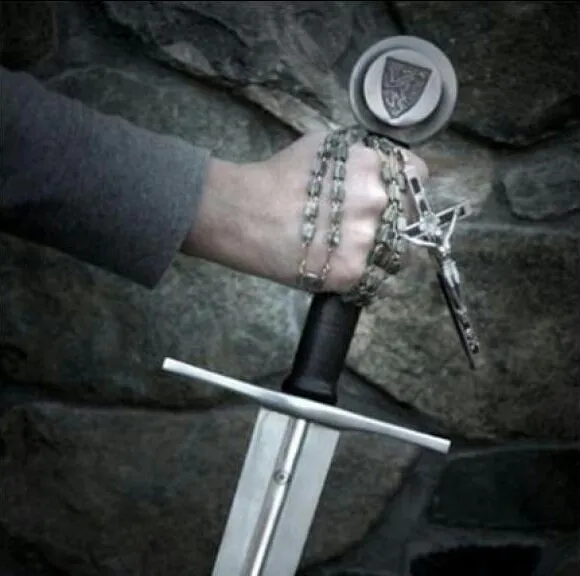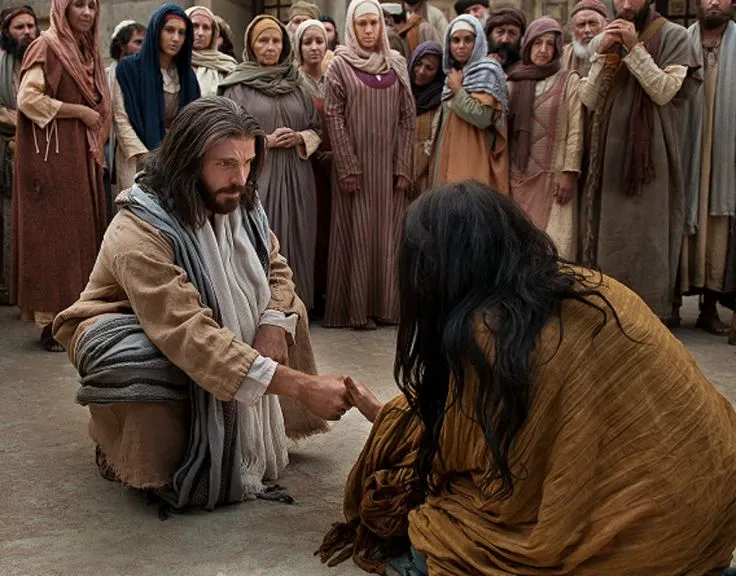Dear Community! Dear friends!
In the Gospel of John 8, we have a moving scene from the life of Jesus: the teachers of the Law and the Pharisees brought a woman caught in adultery. According to the Law of Moses, such people were to be stoned.
"They took advantage of the situation, to leave the Christ in an embarrassing situation:" Teacher, what are we going to do about that woman, forgive her or stone her, as our law mandates?
For the scribes and Pharisees, it was an opportunity to prove Jesus' fidelity to the demands of the Law.
For Jesus, it was the opportunity to reveal God's attitude towards sin and the sinner.
They asked the Master: "What do you say?" (Jn 8,4).
El Salvador does something absolutely unprecedented, not foreseen in the old law: it does not pronounce a sentence but, after a silent pause, a moment of really emotional tension, both on the part of the accusers and the defendant, simply states: "Who of among you do not have sin, be the first to throw a stone at him "(Jn 8,7).
All men are sinners; so no one has the right to fall in love to be a judge of others. Only one has that right: the Innocent One, the Lord, but he does not even use it, preferring to exercise His Savior power: "Nobody condemned you ... I do not condemn you either, you can go, and from now on do not sin anymore "(Jn 8, 10-11). Only Christ, who came to give his life for the salvation of sinners, can free the woman from her sin and say: "Do not sin again.
By saying: He who is without sin among you, throw the first stone; It was as if Jesus had removed the cover of each one's conscience; Jesus knew what was in each one's heart.
The silence became heavy and unbearable; the older ones began to withdraw in silence, perhaps out of fear that Jesus would begin to dig in his past life, to see if they were truly sinless, without that sin which in the Decalogue was called "to desire the wife of the neighbor". It was the silence, not the fact that Jesus wrote on the ground that left them restless.
Did not anyone condemn you? "Jesus says to the woman, she answers: Nobody, Lord! And Jesus: I do not condemn you, go and do not sin again.
Christ is the only one without sin; the only one therefore, who could throw the first stone, but renounce the right to condemn because, like the Father, he does not want the death of the sinner, but convert and live "(Ez 33,11). have infused!
We can be sure: the experience of that forgiveness, of that infinite understanding on the part of Jesus, resumed that woman, filled her heart with the experience of a new love, so different from the one who had deceived her in her adultery.
What does the episode of the adulteress tell us, today's Christians?
This Gospel touches at the root of many of our customs. True, we do not take stones against our neighbor; The civil law prohibits! But the mud itself, the criticism yes. How much lama is undone in the following in certain conversations between friends! If someone in our circle of knowledge weakens or gives rise to conversations, then it falls on him, like those Pharisees; but not because evil is sincerely detested (he is sometimes envious!), but because the sinner detests himself; because of the contrast with their behavior, unconsciously, we want to make our own shine: I thank, my God, that I am not like others, said the Pharisee in the temple.
"Whoever of you is without sin, throw the first stone ..."
For which you are inexcusable, oh man, whoever you are that you judge; for in what you judge another, you condemn yourself; because you who judge do the same.
Romans 2: 1


Romans 2: 1



